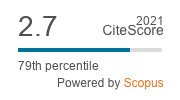Recent advances in the Lefschetz xed point theory for multivalued mappings
Keywords:
multivalued mappings, xed point problem, absolute retracts, admissible mappigns, (1 − n)-acyclic mappings, spheric and random mappings, Lefschetz numberAbstract
In 1923 S. Lefschetz proved the famous xed point theorem known as the Lefschetz xed point theorem (comp. [5], [9], [20], [21]. The multivalued case was considered for the rst time in 1946 by S. Eilenberg and D. Montgomery ([10]). They proved the Lefschetz xed point theorem for acyclic mappings of compact ANR-spaces (absolute neighbourhood retracts (see [4] or [13]) using Vietoris mapping theorem (see [4], [13], [16]) as a main tool. In 1970 Eilenberg, Montgomery's result was generalized for acyclic mappings of complete ANR-s (see [17]). Next, a class of admissible multivalued mappings was introduced ([13] or [16]). Note that the class of admissible mappings is quite large and contains as a special case not only acyclic mappings but also nite compositions of acyclic mappings. For this class of multivalued mappings several versions of the Lefschetz xed point theorem was proved (comp. [11], [13][15], [18], [19], [27]). In 1982 G. Skordev and W. Siegberg ([26]) introduced the class of multivalued mappings so-called now (1 − n)-acyclic mappings. Note that the class (1 − n)-acyclic mappings contains as a special case n-valued mappings considered in [6], [12], [28]. We recommend [8] for the most important results connected with (1 − n)-acyclic mappings. Finally, the Lefschetz xed point theorem was considered for spheric mappings (comp. [3], [2], [7], [23]) and for random multivalued mappings (comp. [1], [2], [13]). Let us remark that the main classes of spaces for which the Lefschetz xed point theorem was formulated are the class of ANR-spaces ([4]) and MANR-spaces
(multi absolute neighbourhood retracts (see [27]). The aim of this paper is to recall the most important results concerning the Lefschetz xed point theorem for multivalued mappings and to prove new versions of this theorem, mainly for AANR-spaces (approximative absolute neighborhood retracts (see [4] or [13]) and for MANR-s. We believe that this article will be useful for analysts applying topological xed point theory for multivalued mappings in nonlinear analysis, especially in dierential inclusions




